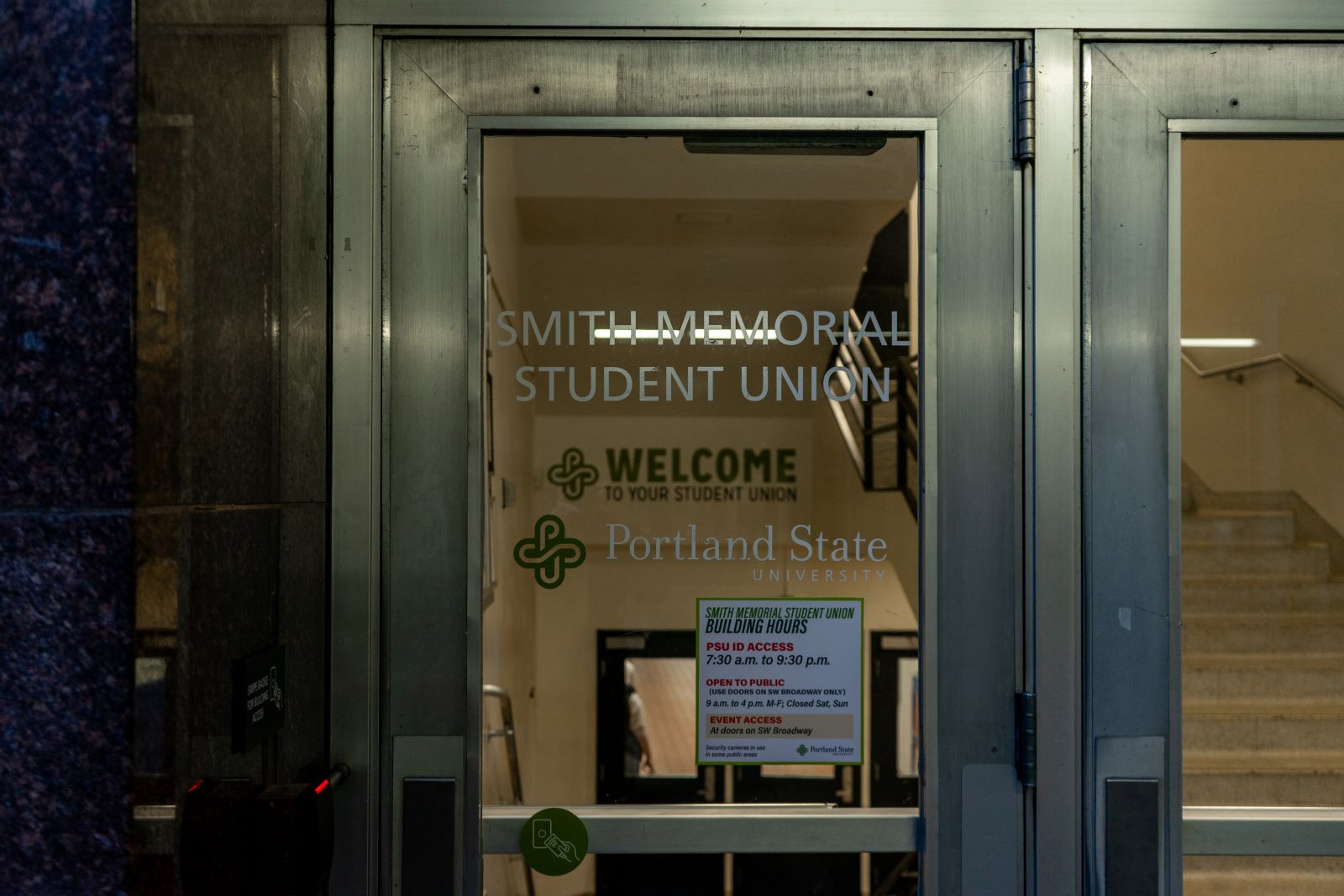This year the United States Postal Service turned 242 years old. To celebrate the milestone, local advocacy group Portland Community and Postal Workers United organized a birthday party protest on July 26 outside the Portland Main Post Office on NW Hoyt St.
Cake, a retired USPS letter carrier, dressed as America’s first postmaster Benjamin Franklin. Cake contributed chants, songs and a petition to the celebration along with fellow retired USPS letter carrier and local activist, Jamie Partridge. Partridge, a familiar face at local workers’ protests, MC’d the event.
“When Postal Service is under attack, what do we do?” Partridge asked the crowd. “Stand up fight back!” the crowd responded.
At one point Partridge sang a parody of Bob Dylan’s classic tune, “The Times They Are A–Changin’” set to a Postal Worker theme focused on being overworked, underpaid, and understaffed. The parody also highlighted USPS’ important role in efficient and reliable mail delivery to U.S. communities.
PCPWU is currently circulating a petition to push back against efforts to stop door-to-door mail delivery. The petition mentions H.R.5714, a legislative proposal to move away from delivery to doors in favor of sidewalk and centralized mail boxes.
Attendee Dave King stopped at the post office to retrieve a shipment of lawn mower parts and joined the party to show his support. “It’s nice for some people that are handicapped, or disabled, or just old, to have the mailman come,” King said. “For some people it’s the only visitors they get.”
King recalled the simple act of mail carriers passing through neighborhoods has saved lives when they’ve heard people in distress within homes on their routes. A recent example occurred last April when a postal worker called 911 after noticing smoke, saving a West Linn home.
Jim McEchron, a retired public employee, expressed support for USPS as a government entity. “I like that the Post Office is part of the government,” McEchron said. “I’m not interested in seeing some private company. UPS, Fedex—they’re great people, but I want the mail to be delivered by the Post Office.”
USPS’ tradition of struggle
Partridge spoke to the Vanguard about changes he’s observed in USPS since he started working there over 30 years ago as a part-time employee. According to Partridge, at the time of his employment USPS offered part–time workers significantly more protections and employed systems that contributed to a stronger sense of reliability in their jobs.
“It’s interesting what’s happening now with this lower-tier, lower-wage workforce. People are getting bounced around from route to route, getting their hours changed all the time, working sometimes six and seven days a week,” Partridge said. “There’s over a 50 percent turnover rate.”
In recent years, the Postal Service has increased its reliance on non-career employees to supplement its permanent workforce. Non-career employees are temporary workers without full benefits and privileges. In 2014, USPS reported just under 130,000 non-career employees, about 21 percent of its total workforce. Non-career employees dropped to 117,000 in 2015, aligned with a shrinking of USPS’ overall workforce.
A Postal Regulatory Commission compliance review for USPS fiscal year 2015 showed a 38.69 percent turnover rate of non-career employees. The combined annual turnover rate for FY 2016 non-career employees was 42.7 percent.
Among non-career employees categories in the PRC report, City Carrier Assistants showed 54.24 percent turnover and Postal Support Employees showed 36.6 percent turnover. The same year, external career hires showed 10.76 percent turnover.
A history of postal protests
Protests aimed at improving the working conditions of USPS employees have been popping up for decades.
February 2017 marked the end of a three-year American Postal Workers Union campaign against office supply retailer Staples, Inc.. In 2013, Staples opened in-store Postal Service counters across the country run by Staples employees instead of USPS employees.
USPS employees saw this as an attempt to remove thousands of living-wage jobs from the workforce. APWU campaigners found success when Staples closed its Postal Service counters.
Partridge discussed the 1970 Postal Strike, famously called a “Wildcat strike” for its involvement in over 200,000 workers striking across the country against the recommendations of their union leaders.
The 1970 strike was in response to poor working conditions and wages so low many workers qualified for welfare programs despite working full time hours.
Richard Nixon made an attempt to solve the issue of absent mail carriers by ordering the U.S. National Guard to deliver mail instead. However, the attempt was unsuccessful and after two weeks USPS closed the strike with agreements to supply higher pay raises and better options for communicating future issues with payroll and working conditions.
Near the end of the protest, faux-Benjamin Franklin announced plans for re–appearing at next year’s 243rd birthday.
Additional reporting by Colleen Leary.







I think they did the right thing and I loved their way of protesting
The way of protest is pretty different and awesome.